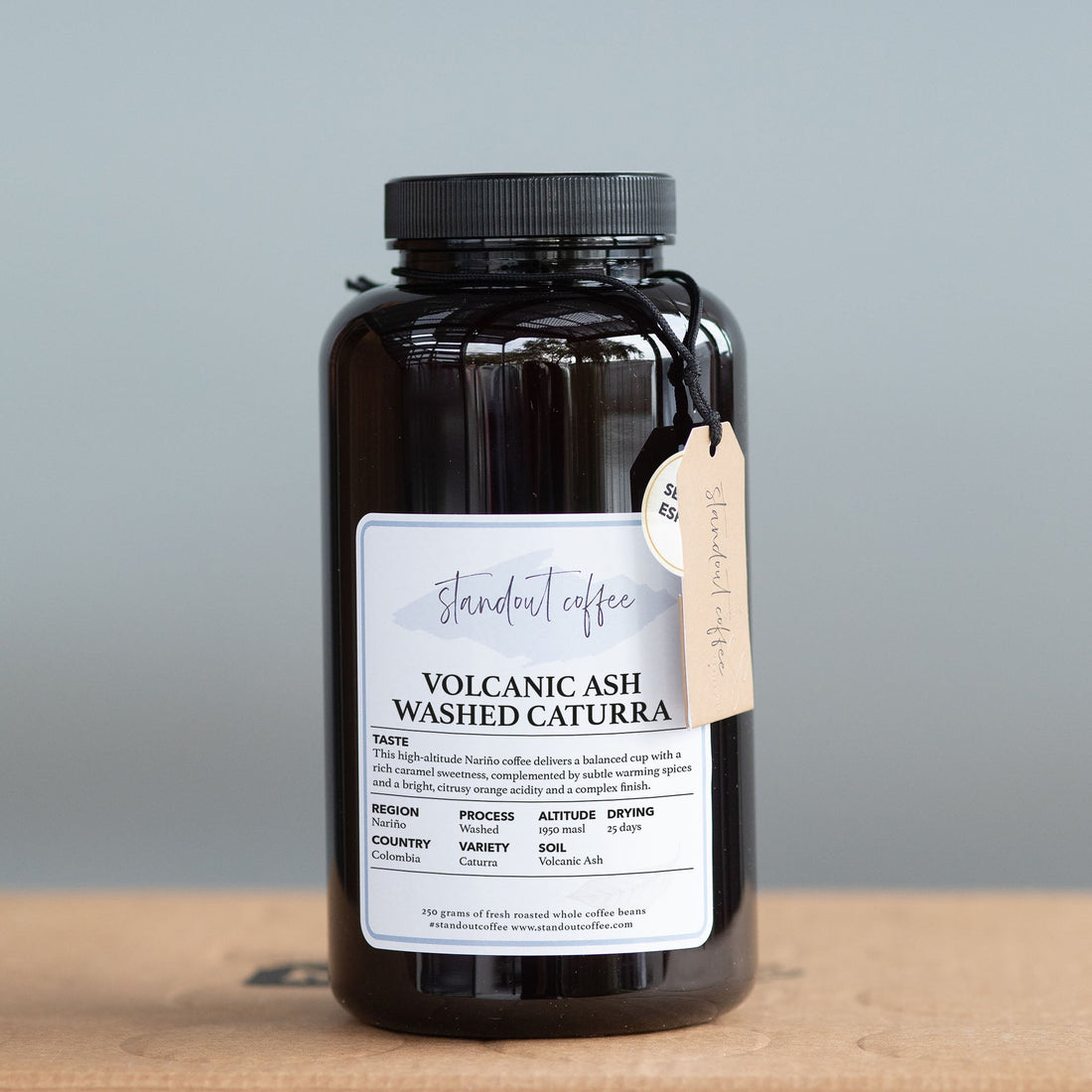When we’re out at fairs and meet people more than once, I often get the super geeky question: How much does soil actually affect coffee?
“Volcanic ash creates the perfect foundation for exceptional coffee—packed with minerals, naturally aerated for deep root growth, and rich in nutrients that enhance sweetness, acidity, and complexity in every cup.” - Oskar Garberg
Many people are familiar with the importance of soil in winemaking, but what about coffee? While I’m not a soil expert, I do love taking care of my plants at home, and every time I visit coffee farms, the conversation naturally turns to the significance of high-quality soil. It’s a topic that comes up time and time again, and for good reason—soil plays a crucial role in shaping the flavors and characteristics of coffee.
A Short Lesson on the Importance of Soil in Coffee
Soil is the foundation of every great coffee. It’s where the plant gets its nutrients, where its roots establish, and where the unique characteristics of a region—its terroir—begin to take shape. While factors like altitude, climate, and processing all influence a coffee’s profile, it all starts with what’s beneath the surface.
Nutrients and Flavor
Healthy soil provides essential elements like nitrogen, phosphorus, and potassium, which directly impact the plant’s health and the sugars, acids, and density of the coffee bean. A well-fed coffee tree produces sweeter, more structured coffee, while nutrient-poor soil can lead to flat or imbalanced flavors.
Mineral Composition and Terroir
Just like wine, different soil types contribute to different cup profiles:
• Volcanic soil is rich in minerals and often associated with bright acidity and complex sweetness.
• Clay-heavy soil retains more water, which can lead to coffees with more body and depth.
• Sandy or loamy soils provide excellent drainage, helping to concentrate flavors and enhance clarity in the cup.
Microbial Life and Soil Health
Living soil is essential. Microorganisms break down organic material, making nutrients more available to the plant. Coffee farms that use composting and regenerative farming often produce healthier trees and more complex, vibrant coffee.
Drainage and Root Development
Coffee plants need a balance of water retention and drainage. Soils that drain well allow roots to breathe and prevent stress, while those that hold too much water can lead to weak trees and lower-quality cherries.
The Takeaway
The soil is where a coffee’s journey begins. A healthy, nutrient-rich, well-balanced soil doesn’t just grow stronger plants—it creates a foundation for exceptional flavors in the cup. So next time you sip a great coffee, remember: it’s not just about variety and processing. It all starts with the earth beneath the tree.




